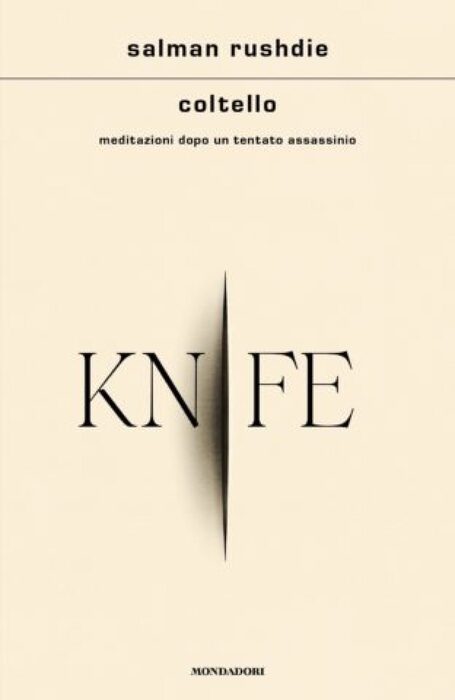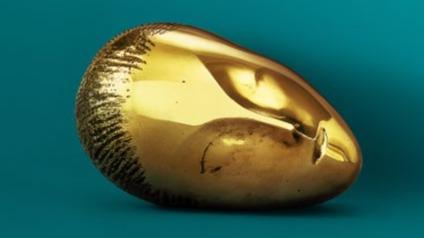Enlarge image
Salman Rushdie 2012 (at an event in Hay-on-Wye)
Photo:
David Levenson/Getty Images
Since 2006, the »Arthur Miller Freedom to Write Lecture« has been the highlight of the World Voices Festival for international literature, which is organized by the American section of the writers' association PEN. In 2012, Salman Rushdie gave the Arthur Miller Lecture; the text of the speech was published in the New Yorker magazine in a slightly revised form. This is the basis of the German translation (by Sabine Herting and Bernhard Robben), published in the anthology »Languages of Truth«.
We document the lyrics to the stabbing attack on Salman Rushdie. The German PEN center made Rushdie an honorary member on Saturday.
I assume I'm supposed to be talking about censorship here, but no writer really wants to talk about censorship.
Writers want to talk about their creations, and censorship is anti-creation, negative energy, non-creation, the origination of non-formation, or to use Tom Stoppard's description of death, "the absence of presence."
Censorship is what prevents you from doing what you want to do, and writers want to talk about what they're doing, not what's preventing them from doing it.
Writers want to talk about how much they get paid and gossip about other writers and
how much
they get paid and they want to complain about critics and publishers and moan about politicians and they want to talk about what they love, about them Writers who love them, about the stories and even about the sentences that mean something to them, and finally they want to talk about their own ideas and their own stories.
about her things.
The British humorist Paul Jennings, in his brilliant essay on 'Resistence' - a parody of existentialism - explained that the world is divided into two categories, 'thing' and 'nothing', and he claimed that between the two there is a never-ending one War.
If writing is "thing," then censorship is "nothing," and as King Lear said to Cordelia, "Nothing can come from nothing," or as Mr. Jennings would have changed Shakespeare, "Nothing can come from nothing: speak again. «
Let's talk about air, if you like.
Here, all around us, it is abundant, freely available, and largely breathable.
Yes, I know it's not perfectly clean or perfectly pure, and yet it's there, plentiful, enough for all of us, and there's plenty left.
When air that can be breathed is so freely available in such quantities, it is needless to claim that breathable air must be freely made available to all, in sufficient quantities for everyone's needs.
What you have is easy to take for granted and ignore.
There is no reason to make a fuss about it.
You breathe freely available, largely breathable air, and you live your day.
The air is not an issue.
It's not something to discuss.
Now imagine that somewhere up there you find giant faucets and that the air we breathe comes out of those faucets, hot air, cold air and lukewarm air from a heavenly faucet.
And imagine that some unknown or perhaps even familiar entity up there one day begins to turn off tap after tap so that we gradually feel that the available air, still breathable, still free, is getting thinner.
There comes a time when we find that we are breathing harder, maybe even gasping for air.
By then, many of us would be protesting, condemning the reduction in air supply, and standing up loud for the right to freely available, largely breathable air.
Scarcity creates demand.
Freedom is the air we breathe, and living like us in a part of the world where it reigns, imperfect as the provision may be, is still freely available, at least for those of us who don't wear hoodies, black youth in Miami, and largely breathable, unless, of course, we're women in the "red" states who want to be in charge of their own bodies.
Imperfectly free, imperfectly breathable, but if it's breathable and free we don't have to make a big deal out of it.
We take them for granted and live our day.
And when we fall asleep at night, we assume that since we were free today, we will be free tomorrow.
The creative act requires not only freedom, but also the acceptance of this freedom.
If the creative artist worries whether he will still be free tomorrow, he is not free today either.
If he fears the consequences of his chosen subject or the way he treats it, then his choice is not determined by his talent but by fear.
If we don't have confidence in our freedom, then we are not free.
Worse still, when censorship intrudes on art, it becomes an issue;
art becomes "censored art," and that is how the world sees and understands it.
Censorship labels the work as immoral or blasphemous or pornographic or controversial, and those words will forever hang on the censored works like albatrosses around the necks of those cursed sailors.
The attack on the work does more than define the work;
in a sense, the attack becomes the work for the general public.
To every reader of
Lady Chatterley's Lover
or
Tropic of Capricorn
, to every viewer of
Last Tango in Paris
or
Clockwork Orange
come tens, hundreds, thousands of people who “know” that these works are grossly obscene or grossly brutal, or both.
The presumption of guilt replaces the presumption of innocence.
Why did this Indian Muslim artist have to paint this Hindu goddess naked?
Couldn't he have respected her modesty?
Why did this Russian writer have to make his hero fall in love with a nymphet?
Couldn't he have chosen a legal age?
Why did this British playwright depict sexual abuse in a Sikh temple, in a
gurdwara
?
Couldn't the same abuse have taken place far from holy ground?
Why are artists so uncomfortable?
Can't they just offer us beauty, morality and a damn good story?
Why do artists think we should be on their side when they behave like this?
"And the people said sit down,
sit down you're rocking the boat."
Indeed, censorship at its most effective succeeds in substituting lies for the artist's truth, such that what is censored is believed to deserve censorship.
Rocking the boat is widely frowned upon.
The final victory of censorship is achieved when people can no longer imagine an uncensored society.
Sometimes great banned works defy censorship interpretation and impose themselves on the world.
Ulysses
,
Lolita
,
Arabian Nights
.
Sometimes great, brave artists defy censorship to create fabulous underground literature, as in the case of samizdat literature in the Soviet Union, or to make subtle films that balance on the censor's sharp scissors, as in the case of many contemporary Iranian and some Chinese films .
You'll even find people arguing that censorship is good for artists because it challenges their imaginations.
It's like saying that if you cut off a person's arms, they can be celebrated for learning to write with a pen between their teeth.
Censorship is not good for art, and in fact it is very bad for artists.
The poet Ovid was banished to the Black Sea by an indignant Emperor Augustus and spent the rest of his life in a little shithole called Tomi;
but Ovid's poetry survived the Roman Empire.
The poet Mandelstam died in one of Stalin's labor camps, but Mandelstam's poetry survived the Soviet Union.
The poet Federico García Lorca was murdered in Spain by Generalissimo Franco's henchmen;
but García Lorca's poetry has survived the Fascist Falange.
So maybe we can say that art is stronger than censorship, and maybe it often is.
But artists are vulnerable.
Our job here at PEN is to defend and, where possible, to protect the artist as well as the art, the imprisoned writer as well as his imprisoned or forbidden words.
In many countries around the world, a gathering like World Voices, where a hundred or so writers talk about all sorts of things in all sorts of ways, simply couldn't happen.
The air here is not clean, but you can breathe it.
This is no cause for complacency.
Recently, Britain's PEN protested that the London Book Fair had invited only a handful of "official," state-approved Chinese writers, while the voices of at least thirty-five writers imprisoned by the regime, including Nobel laureate Liu Xiaobo and PEN member Zhu Yufu, remained silent and were ignored.
Every year in the United States, religious zealots campaign to ban writers as dissimilar as Kurt Vonnegut and JK Rowling—a clear advocate of witchcraft and black magic—not to mention poor God-stricken Charles Darwin which the proponents of »Intelligent Design« continue to use.
I once wrote - and it still seems right to me -
Even more serious is the growing acceptance of the don't-rock-the-boat-reaction to artists who rock it, the growing acceptance that censorship may be justified when certain interest, gender or creed groups push through a work feel offended.
But great art, or let's say more modestly, original art, is never created in the safe middle, but always on the edges.
Originality is dangerous.
It prompts questions, overturns assumptions, shatters moral codes, disrespects sacred cows and other such beings.
It can be shocking, ugly, or, to use the all-encompassing term popular with tabloids, controversial.
And if we believe in freedom, if we want the air we breathe to remain abundant and breathable, then we must not only defend, but celebrate art's right to exist.
Art is not entertainment.
At its very best, it is a revolution.







/cloudfront-eu-central-1.images.arcpublishing.com/prisa/MC7UM7NN6VGRXK5M2W6JEUECIY.jpg)
/cloudfront-eu-central-1.images.arcpublishing.com/prisa/LVAYIUED5RBEJD5HNAFC4ZHODY.jpg)